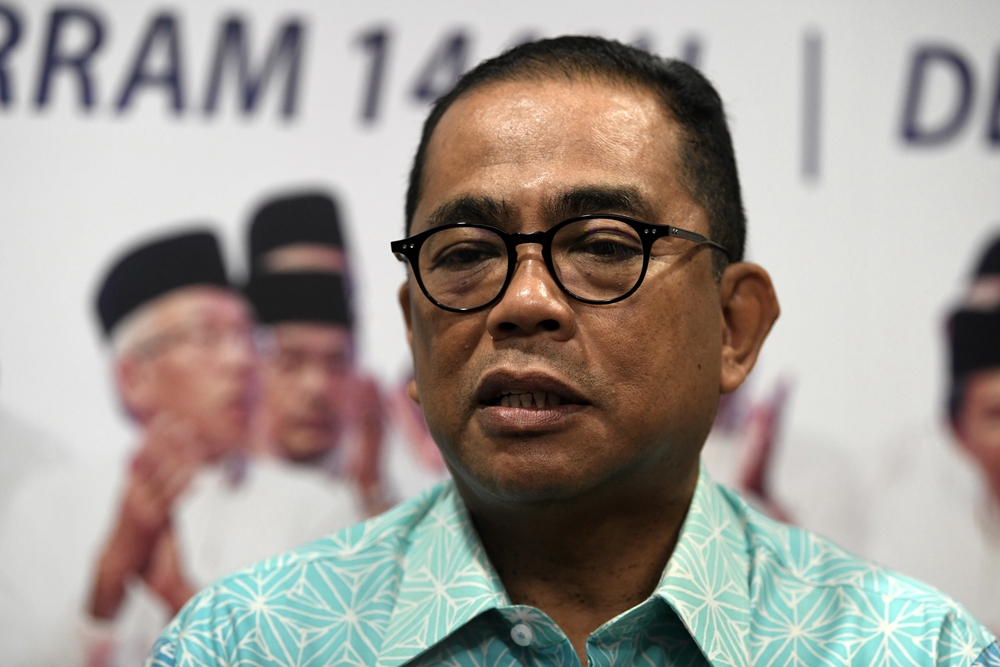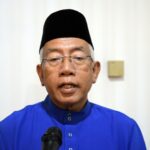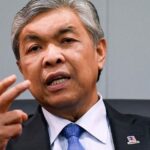HARI ini 7 Mei bermulalah Perintah Kawalan Pergerakan (PKP) untuk kesekian kalinya bagi Wilayah Persekutuan Kuala Lumpur, sekali gus menyertai beberapa daerah lain di Selangor dan Johor yang telah terlebih dahulu dikenakan PKP.
Ia sudah pasti mengingatkan pada 18 Mac tahun lalu ketika kita mula-mula melaksanakan perintah kawalan pergerakan ini. Dalam tempoh kira-kira 14 bulan ini, banyak perkara yang sudah kita dengar, tempuh dan saksikan.
Peningkatan mereka yang dibuang kerja, kemelaratan golongan B40, kelesuan frontliners yang bertugas tanpa henti, kemeruduman ekonomi, keputusan pelabur-pelabur besar lari meninggalkan negara dan pelbagai lagi. Banyak intervensi yang cuba diperkenalkan oleh Perikatan Nasional untuk berhadapan dengan semua ini biar pun tidak banyak yang akhirnya berhasil.
 Malangnya, di sebalik kerencaman usaha tersebut, tidak banyak yang kita dengar tentang pendidikan. Melainkan 3 perkara. Pertama, pemansuhan UPSR dan PT3. Kedua, sekolah dibuka. Ketiga, sekolah ditutup.
Malangnya, di sebalik kerencaman usaha tersebut, tidak banyak yang kita dengar tentang pendidikan. Melainkan 3 perkara. Pertama, pemansuhan UPSR dan PT3. Kedua, sekolah dibuka. Ketiga, sekolah ditutup.
Hanya perkara pertama yang melibatkan polisi dan perubahan sistem. Perkara kedua dan ketiga, hanyalah keputusan yang dibuat berulang-ulang, berselang-selang. Itu pun dalam kebanyakan waktu, dilakukan pada minit-minit akhir. Malah, dalam keadaan tertentu, guru dan sekolah sampai ada yang diugut untuk didenda.
Sekolah kita dalam keadaan cacamerba. Ibu bapa bingung. Guru-guru runsing. Murid- murid, lebih teruk. Mereka sudah tidak faham dengan sistem persekolahan yang ada. Malah, mereka berisiko besar menjadi generasi yang ketinggalan.
UNESCO melaporkan bahawa rata-rata pelajar di seluruh dunia kehilangan 2 per 3 tahun akademik kerana penutupan sekolah. Dan negara kita telah menutup sekolah selama kira-kira 36 minggu atau lapan bulan sepanjang tempoh setahun semenjak pandemik COVID-19 melanda.
Tanpa polisi dan langkah yang jelas, bayangkan berapa banyak masa (tahun) yang kehilangan dan sedang terbuang? Malah, dianggarkan kira-kira 1.6 bilion pelajar di seluruh dunia akan terkesan dengan anggaran 23.8 juta orang bakal tercicir sekiranya pandemik ini berterusan.
Terdapat beberapa perkara yang sepatutnya dilakukan atau dipertimbangkan oleh Menteri Kanan Bersatu yang menjaga portfolio pendidikan.
Pertama, wujudkan Jawatankuasa Khas untuk mengkaji pendekatan dan polisi terbaik pendidikan negara era pandemik.
Jawatankuasa ini mesti meneliti keperluan dan jalan keluar yang praktikal dan radikal. Bukannya sekadar membincangkan sama ada membuka atau menutup sekolah mengikut jumlah kes harian COVID-19. Semak dan bangunkan pendekatan terbaik untuk diguna pakai oleh sistem persekolahan agar pembelajaran tidak terbantut sekali pun dalam era pandemik.
Sasaran pendekatan atau perubahan polisi yang diusulkan mesti menjangkau jauh sehingga 5 tahun ke depan. Bukannya mengeluarkan saranan untuk 2 bulan akan datang. Malah, inilah masa terbaik untuk menyelaras dan menyusun semula peruntukan pendidikan kita, agar perbelanjaan terbesar negara ini benar-benar dimanfaatkan dengan cara yang menampakkan hasil.
Kedua, optimumkan penglibatan semua pihak dalam mewujudkan ekosistem pendidikan era pandemik yang anjal dan berkesan.
 Isu pendidikan adalah isu nasional yang merentas ideologi, bangsa dan kasta sosial. Semua pihak mesti terlibat dan membantu. Sudah tiba masanya untuk Menteri Kanan menyantuni (reach out) pihak-pihak lain seperti PIBG, pemain industri, penyedia teknologi pendidikan dan open learning online platform, para penyedia tuisyen swasta, NGO, persatuan penduduk setempat dan pelbagai gerakan sukarelawan. Semua pihak mempunyai tanggungjawab dan tugas untuk sama-sama menyumbang.
Isu pendidikan adalah isu nasional yang merentas ideologi, bangsa dan kasta sosial. Semua pihak mesti terlibat dan membantu. Sudah tiba masanya untuk Menteri Kanan menyantuni (reach out) pihak-pihak lain seperti PIBG, pemain industri, penyedia teknologi pendidikan dan open learning online platform, para penyedia tuisyen swasta, NGO, persatuan penduduk setempat dan pelbagai gerakan sukarelawan. Semua pihak mempunyai tanggungjawab dan tugas untuk sama-sama menyumbang.
Pedagogi dan sistem penilaian yang digunakan mesti berubah. Dan itu belum lagi kita bercakap tentang keperluan sekolah untuk dilengkapkan dengan tenaga dan sumber manusia dalam aspek kaunseling, moral dan kesihatan mental, yang kini merupakan isu genting. Pada masa yang sama, adalah kritikal agar Murid Berkeperluan Khas (MBK), tidak diabaikan sama sekali.
Yang pasti, kita mesti sedar bahawa pelajar hari ini bukan sahaja berhadapan dengan beban akademik, tetapi cabaran pandemik.
Ketiga, lihat dan contohi negara lain. Kalau Menteri Kanan pendidikan sudah kekontangan idea, jangan segan dan teragak- agak untuk mencontohi dan mengambil pedoman dari negara lain.
Dalam laporan oleh OECD 2020 bertajuk Initial Education Policy Responses To The COVID-19 Pancemic: Norway dilaporkan bahawa Kerajaan Norway bukan sahaja memastikan wujud akses percuma kepada semua platform pembelajaran online kepada semua sekolah, malah wujud program khas secara bersasar untuk membantu kelompok pelajar tertentu.
Dalam Education in Japan Beyond the Cricis of COVID-19 – Leave No One Behind, yang diterbitkan oleh Kementerian Pendidikan, Budaya, Sukan, Sains dan Teknologi Jepun (MEXT) pada September 2020, negara matahari terbit tersebut telah memperuntukkan fokus yang serius untuk menambah kakitangan dan sumber tenaga manusia sokongan kepada semua institusi pendidikan bagi memastikan proses pembelajaran semasa pandemik berjalan dlancar tanpa terlalu membebankan guru.
Malangnya, kita tidak pernah mendengar sekali pun tentang pertambahan kakitangan dan guru bantuan di negara kita. Barangkali Menteri Kanan Pendidikan berpandangan, semakin banyak sekolah ditutup, maka semakin sedikitlah guru yang diperlukan. Sedangkan realiti adalah sebaliknya.
Tidak ada pihak yang menyatakan bahawa era pandemik adalah era yang mudah. Ia zaman sukar. Namun, ini bukan alasan untuk kita mengambil mudah sistem dan keberkesanan pendidikan.
Benar, sekarang ini era pandemik. Namun, sekolah jangan sesekali dibiar ‘sakit’! – UMNO ONLINE
Datuk Seri Mohamed Khaled Nordin
Naib Presiden UMNO







